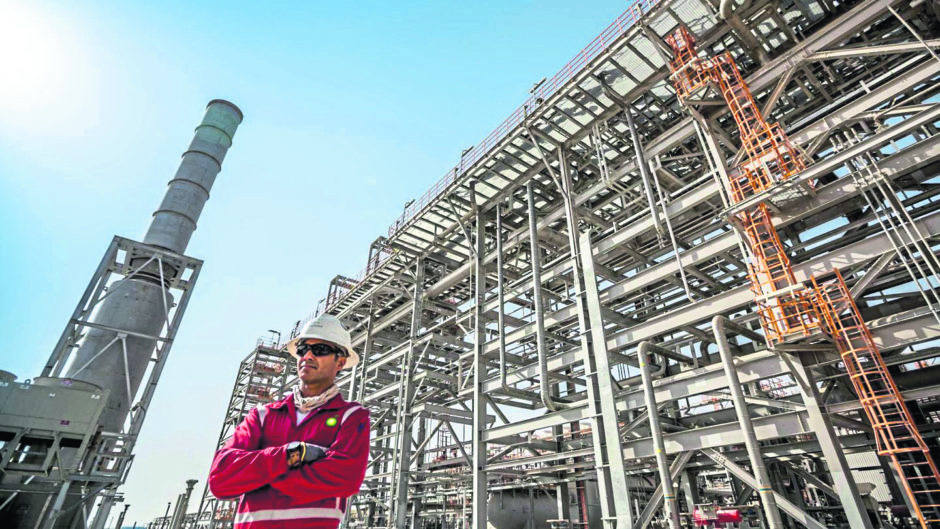
Two commodities investment specialists recently provided fascinating commentary on the “dual challenge” facing the energy industry.
Anton Eser and Nick Stansbury of Legal & General Investment Management accused some players of “hiding behind the dual nature” of the challenge, using it as an excuse to keep spending money the same way they always have.
To clarify, the dual challenge is the need not just to reduce emissions, but to keep up with world demand for energy.
Mr Eser and Mr Stansbury wrote in the FT that both would require huge investment, but that it was vital to recognise that the challenges are not equal.
They argued that investors needed to treat decarbonisation as the primary challenge.
There’s no point meeting energy demand for a world that is “sub-habitable”, they reasoned, adding that industry has been much more successful in meeting one challenge than the other.
It feeds into the argument put forward by many climate change activist groups that much of what oil and gas companies are doing to reduce emissions is little more than “greenwashing” – a PR stunt to deflect attention.
Gordon Birrell, BP’s chief operating officer for production, transformation and carbon, strongly believes his employer is not paying lip service to the emissions side of the challenge.
Mr Birrell is proud of the work BP is doing on decarbonisation, but is clear that demand does need to be met, describing energy as the “lifeblood of progress”.
He said: “There will always be people who will make this comment about greenwashing.
“I am confident we are doing real things to make real changes to operations we control.”
Last year BP achieved zero net growth in operational emissions and a methane intensity of 0.2%.
The firm has chopped greenhouse gas emissions by 2.5 million tonnes since the start of 2016, putting BP well on its way to hitting its target of 3.5m tonnes by 2025. Starting this year, bonuses for 36,000 BP employees, including executive directors, will be linked to greenhouse gas reduction efforts.
And in March the supermajor said it would make £75m worth of funding available for new emissions reductions projects in its upstream operations.
The company is working on several projects aimed at measuring and cutting emissions of methane, which is about 25 times more potent than carbon dioxide if it finds its way into the atmosphere unburnt.
In March, Unearthed, an arm of Greenpeace, accused BP of lobbying the White House for methane emissions rules to be softened in the US.
BP said subsequent press coverage by the FT was an unfair representation of its commitment to tackling methane emissions.
In the same week, London-headquartered BP was calling for the Trump administration to tighten regulations and announced a three-year partnership with the Environmental Defense Fund to develop methane leak detection and prevention tools.
Mr Birrell said BP was working with a US company called Providence Photonics to enhance cameras for detecting methane leaks.
The idea is to add software which would let the cameras quantify how much is leaking from the different leakage points, for example, valves and flanges.
Mr Birrell said better measurement was a “big step forward”, as it enables companies to fix the bigger leaks faster.
BP is also hoping to benefit from a project involving Providence, Lockheed Martin and Surface Optics to detect how much methane is entering the atmosphere unburnt from flare systems.
He said BP had spent a lot of money on its flares and had found that they had better than 98% efficiency.
Another project involves technology from Houston-based Rebellion Photonics and is focused on the 24/7 monitoring of facilities to catch ad hoc venting.
And BP has worked with companies to attach methane detection sensors to drones which can fly to remote, unmanned well sites in the Lower 48 to detect leaks.
Mr Birrell said technology was important, as is passion from all age groups inside the company.
“The passion is there,” he said. “We’re all citizens of the world who want to leave the planet in good shape.”
Mr Birrell will be at this year’s Offshore Technology Conference and said: “At most conferences we go to, there is more focus on emissions and OTC is an important part of industry’s conference circuit.
“What I want to get from it is to learn and listen to other people, pick up technology and new ideas and use them in our company.”
Recommended for you
